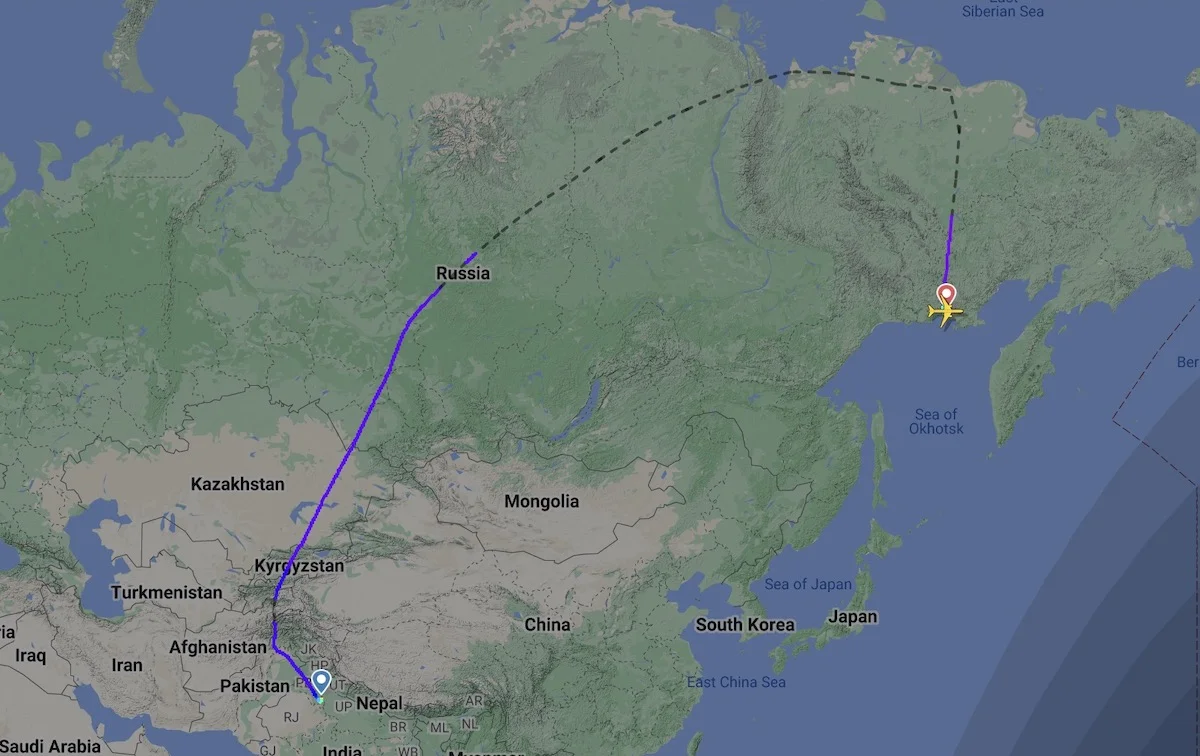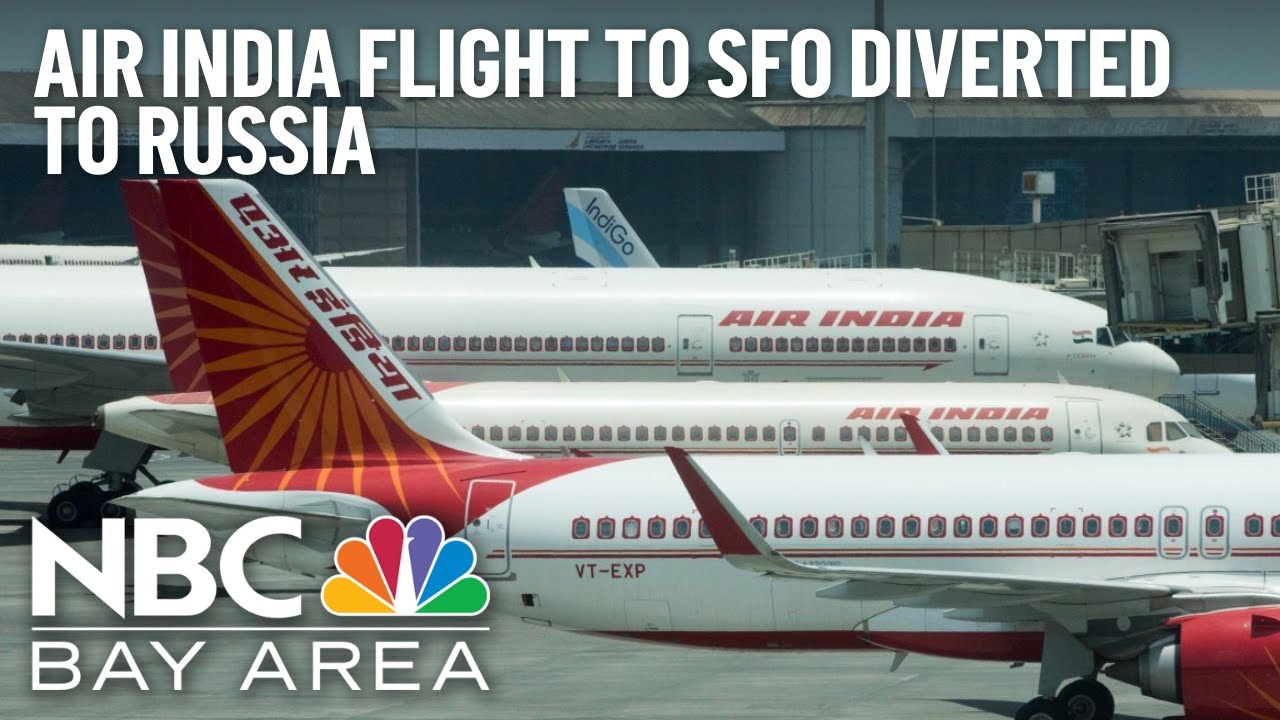The Diversion Of Air India Jetliner Puts Focus On Tensions Surrounding Russian Airspace
The diversion of Air India jetliner puts focus on tensions surrounding Russian airspace. This incident occurred just a day after the CEO of a major American carrier predicted a similar scenario.
Author:Rhyley CarneyReviewer:Paula M. GrahamJun 08, 202320.3K Shares275.3K Views

The diversion of Air India jetliner puts focus on tensions surrounding Russian airspace.This incident occurred just a day after the CEO of a major American carrier predicted a similar scenario.
The diversion has sparked a heated debate among carriers at a global industry meeting, with United Airlines raising trade concerns while India's flag carrier defends the use of Russian airspace.
In response to Western sanctions related to the Ukraine war, Russia imposed a ban on certain foreign carriers from using its airspace. This retaliatory action has led to a significant reshuffling of air routes and disrupted business models for airlines that now need to circumnavigate the largest country in the world.
According to Eurocontrol,an air traffic control body based in Brussels, one flight between Europe and Asia generates three flights throughout the network as passengers connect to their final destinations. The implications of these changes are far-reaching.

SFO-bound Air India flight diverted to Russia
Airlines Differ On Using Russian Airspace, Providing Competitive Edge
While U.S., European, and Japanese carriers have ceased flying over Russia, Air India, along with several Gulf-based and Chinese airlines, continue to utilize Russian airspace. This decision allows them to reduce flying times and gain a cost advantage over their competitors.
CEO Campbell Wilson of Air India emphasized that the airline operates within the guidelines set by the Indian government, which may differ from other nations. As a result, different outcomes arise, as stated during the International Air Transport Association's (IATA) annual meeting held in Istanbul.
Air India's Strategic Advantage And United Airlines' Economic Impact
Air India, under the new ownership of Tata Group, has been expanding its international presence by introducing non-stop flights to Europe and the United States. The ability to utilize Russian airspace has been a significant advantage for Air India, enabling it to capture a larger market share.
In contrast, United Airlines' CEO, Scott Kirby, highlighted the negative consequences they face, such as having to suspend several flights to India due to economic or aircraft range limitations caused by the required detours.
With tensions between superpowers escalating and concerns over potential crises, the disagreement surrounding the use of Russian airspace sheds light on the strategic and geographic significance of Russia in the global aviation industry.
Russia provides the most direct flying path between the West and the East, a crucial factor for airlines seeking to minimize costs.
While IATA, a prominent trade body for civil aviation, aims to establish a seamless global architecture for the industry, the international response to Russia's actions in Ukraine has revealed divisions among its members regarding the use of Russian air corridors.
IATA Director General Willie Walsh called for an opening up of Russian airspace to address these differences.
Competitive Disadvantages And The Need For A Level Playing Field
Airlines in the United States have engaged in discussions with the government to discourage carriers from landing on U.S. soil after flying through Russian airspace, as this generates fees for Moscow.
Western carriers express concerns about potential competitive disadvantages compared to Chinese airlines, particularly as China's economy recovers and outbound travel increases.
However, airlines capable of doing so are unlikely to cease using Russian airspace due to this recent diversion incident. According to James Halstead, managing partner at Aviation Strategy, it is simply the hand they have been dealt.
Aviation Industry Leaders React And Stress The Importance Of Connectivity
Amidst these debates, industry leaders stress the importance of aviation in connecting economies and cultures, particularly during the pandemic when the consequences of disrupted connectivity were evident.
Air India's CEO, Campbell Wilson, emphasizes that linking geopolitics to an industry that plays a crucial role in connecting the world may not be the best approach. Vinod Kannan, CEO of India's Vistara, points out that as long as airlines abide by the laws of the land and do not violate any regulations, the use of Russian airspace should not be an issue.
The future of air travel routes and the resolution of tensions surrounding the use of Russian airspace remain uncertain. As the global aviation industry grapples with these challenges, finding a balance between economic considerations, political dynamics, and the need for seamless connectivity will be paramount for the continued growth and efficiency of the sector.
Final Words
The diversion of an Air India jetliner to Russia due to engine problems has brought attention to the tensions surrounding the use of Russian airspace. The incident has sparked debates among carriers, highlighting the differing perspectives on the issue.
While some airlines benefit from shorter flying times and cost advantages by utilizing Russian airspace, others face economic and operational challenges due to detours.
The geopolitical implications, competitive disadvantages, and calls for a level playing field underscore the importance of finding a resolution.
As the aviation industry strives for seamless connectivity, balancing economic factors, political dynamics, and global cooperation will be essential for its continued success.

Rhyley Carney
Author

Paula M. Graham
Reviewer
Latest Articles
Popular Articles